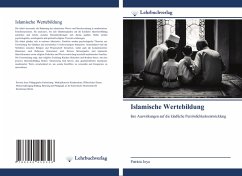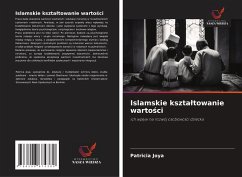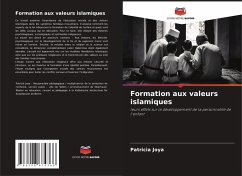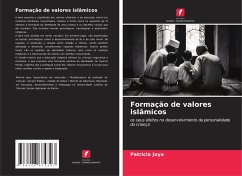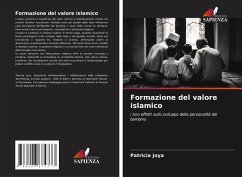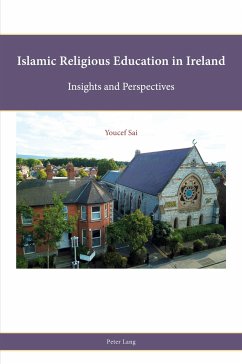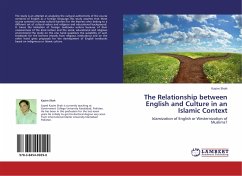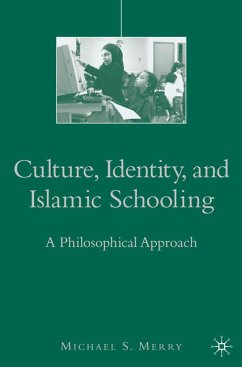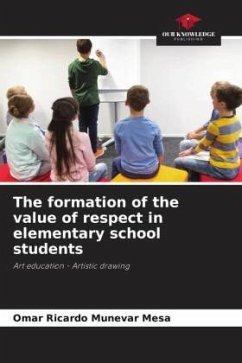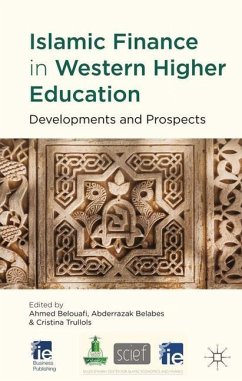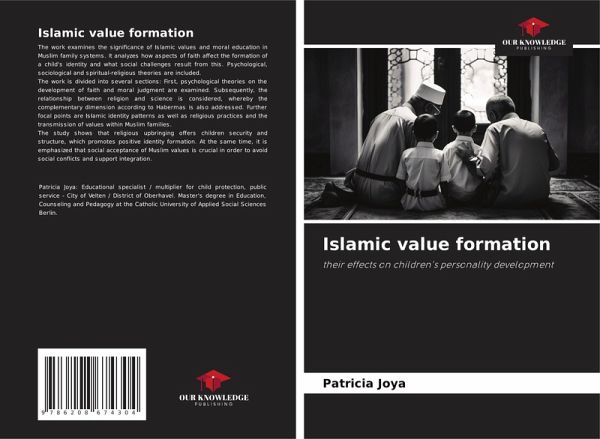
Islamic value formation
their effects on children's personality development
Versandkostenfrei!
Versandfertig in 6-10 Tagen
29,99 €
inkl. MwSt.

PAYBACK Punkte
15 °P sammeln!
The work examines the significance of Islamic values and moral education in Muslim family systems. It analyzes how aspects of faith affect the formation of a child's identity and what social challenges result from this. Psychological, sociological and spiritual-religious theories are included. The work is divided into several sections: First, psychological theories on the development of faith and moral judgment are examined. Subsequently, the relationship between religion and science is considered, whereby the complementary dimension according to Habermas is also addressed. Further focal point...
The work examines the significance of Islamic values and moral education in Muslim family systems. It analyzes how aspects of faith affect the formation of a child's identity and what social challenges result from this. Psychological, sociological and spiritual-religious theories are included. The work is divided into several sections: First, psychological theories on the development of faith and moral judgment are examined. Subsequently, the relationship between religion and science is considered, whereby the complementary dimension according to Habermas is also addressed. Further focal points are Islamic identity patterns as well as religious practices and the transmission of values within Muslim families. The study shows that religious upbringing offers children security and structure, which promotes positive identity formation. At the same time, it is emphasized that social acceptance of Muslim values is crucial in order to avoid social conflicts and support integration.



